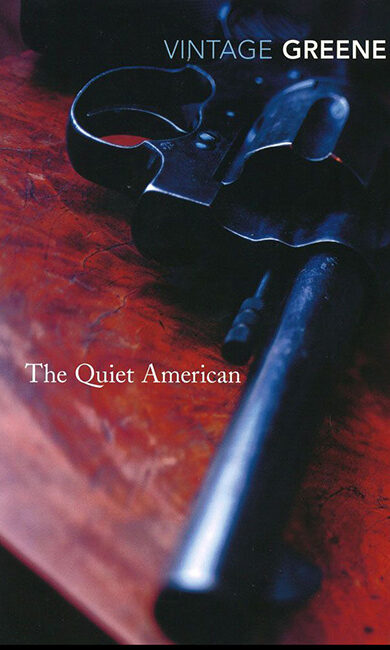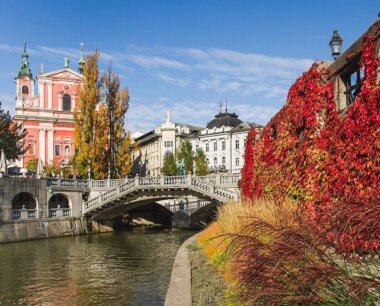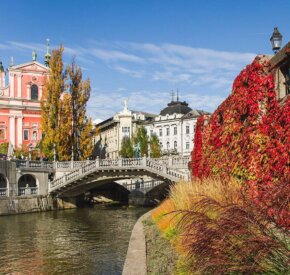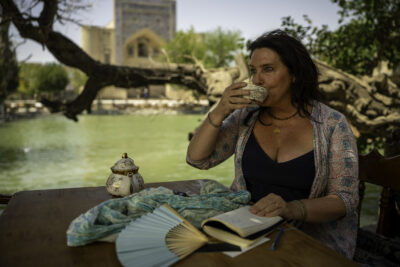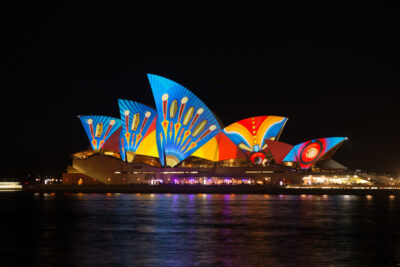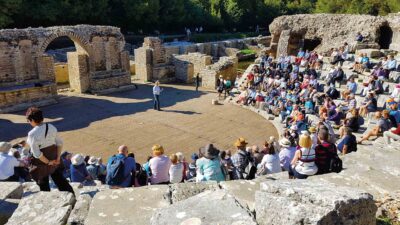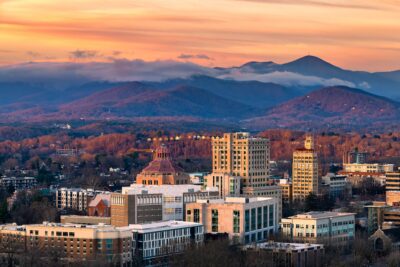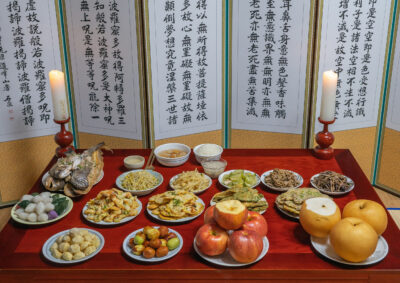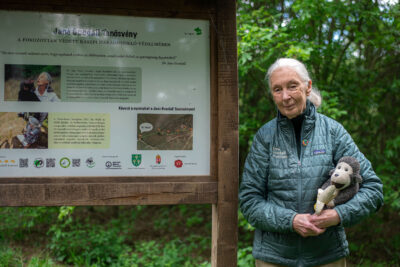Booked the flights and your hotel for your trip to Vietnam? The next step is to start researching where to go and what to do.
While these days it might be tempting to just search for a destination on TikTok or Instagram, we love to keep it old school and read something a little more in depth.
Made your way through our Vietnam content? Then it might be time for you to buy one of these eight books on Vietnam, as chosen by Stanfords. From classic Vietnam travel guides to fictional novels that take you back to 1960s Saigon, buy these books for your bedside table ASAP.
Readers can get a 10% discount on any items they order on the Stanfords website if they use the code WANDERING at checkout

A Dragon Apparent: Travels in Cambodia, Laos & Vietnam
by Norman Lewis
The book received lots of praise and was immediately a bestseller because everyone wanted to know what was happening during this pivotal time in Vietnam’s history. Through immersing himself in the local life, Lewis presents a fascinating insight of West meeting East.
If you haven’t read any Norman Lewis, this is a great one of his books to get started on. His curiosity for everything around him made him a great and successful travel writer. His work spanned eight decades, with his final book The Tomb in Seville being published the year he died, aged 95.
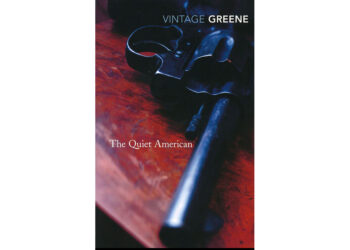
The Quiet American
by Graham Greene
The novel is about an optimistic, naïve American official who is sent to Saigon to promote democracy through a mysterious ‘Third Force’. It is a cautionary tale, and a lot of factors in this story subsequently happened in real life, in terms of the outcome of the Vietnam War and American involvement. For that reason and others, including a compelling and complex ‘love triangle’, The Quiet American has remained of great interest. For obvious reasons, this is a great one to read alongside A Dragon Apparent.
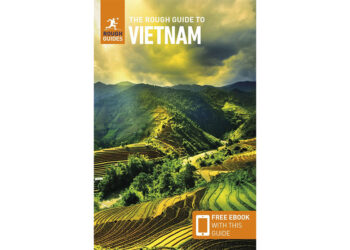
The Rough Guide to Vietnam
This guide contains detailed listings for destinations throughout the country and divides the information into easy to digest sections, with amazing colour photography throughout. Introductory chapters advise where and when to go, authors picks, things not to miss and suggested itineraries.
A whole section on ‘basics’ covers accommodation recommendations from cheap to luxury, food and drink, safety, shopping, sports, travelling with children and travel essentials.
Then the guide splits the country into eight regions, offering in-depth advice and information, maps and listings. This is a really extensive guide that explains the history, religious beliefs and environmental issues within the country, and recommends books and films for further exploration.
Read next: Our guide to the best time to visit Vietnam, no matter your itinerary
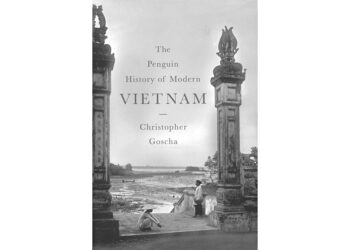
The Penguin History of Modern Vietnam
by Christopher Goscha
Having been both colonisers and victims of colonisation over the centuries, Vietnam has survived and retained so much culture, while evolving with the Western influences that have shaped it into the much loved tourist destination of today.
This book will help you understand the many layers of history from an insider’s perspective. It includes some pictures and, despite its heavy appearance, the content is explained clearly. Its in-depth accounts don’t read like a typical history book.
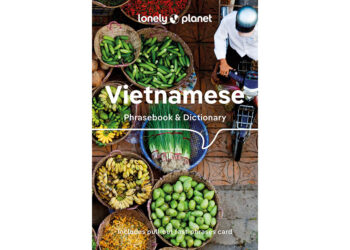
Lonely Planet Vietnamese Phrasebook & Dictionary
Here’s a pocket-sized guide phrasebook and dictionary that you can carry around in the time leading up to your trip, to dip into from time to time so you can familiarise yourself with the basics of Vietnamese. With cultural tips, pronunciation guides, and a 3,500-word dictionary, you’ll be more confident navigating menus, meeting locals, and handling emergencies. User-friendly features include survival phrases and sentence starters. Covering basics, travel, social situations, and food, this guide is perfect for travellers and language learners eager to connect and explore Vietnam with ease.
Read next: 17 of the best things to do in Vietnam
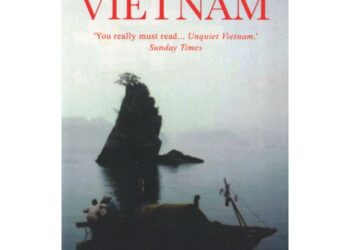
Unquiet Vietnam
By Kenneth Murphy
Ken Murphy explores Vietnam’s ancient civilisation, now fading under foreign investment after resisting French colonialism and American imperialism. Meeting figures like the last Vietnamese imperial family member, he uncovers a culture struggling to survive. His journey is personal as his brother was among the last U.S. soldiers killed in the war. Initially shaped by 1970s protests, his perspective shifts as he meets locals, from U.S.-educated Khmer to trading families and citizens rebuilding after Communism. Through their stories, he falls in love with a resilient country, revealing a history beyond war and a culture fighting to endure in a changing world.
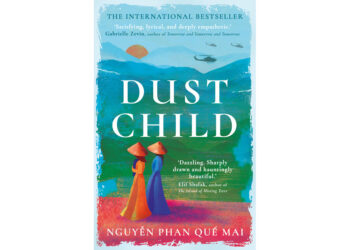
Dust Child
by Nguyen Phan Que Mai
Shortlisted for the Viking Fiction with a Sense of Place Award at the 2024 Edward Stanford Travel Writing Awards.
In 1969, two sisters travel to the bustling city of Sai Gon and get caught in the war’s turmoil. They begin working as ‘bar girls’ in one of the drinking dens frequented by American GIs, forced to survive and compromising the values they once treasured. Decades later, in a very different Sai Gon: modern, forward-looking, healing, the son of a Black American soldier and a Vietnamese woman – embarks on a search to find his parents and a way out of Viet Nam, while a war veteran, hopes that retracing the steps of his youth will ease the PTSD that has plagued him for decades.
Each character is forced to face the history that still ripple through their lives. Now they must work out what it takes to move forward in this richly poetic saga from Nguyen Phan Que Mai at her very best.
Read next: Hanoi or Ho Chi Minh City: Which Vietnamese city should you visit?
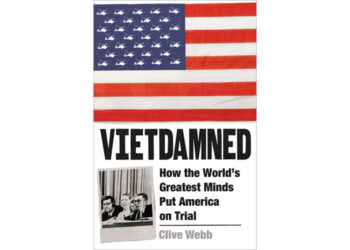
Vietdamned: How the World’s Greatest Minds Put America on Trial
by Clive Webb
Award-winning historian Clive Webb unearths the extraordinary story of the 1967 Russell Tribunal, which sought to hold the U.S. government accountable for Vietnam War atrocities. The verdict was delivered by a jury of the greatest minds of the twentieth century, among them Jean-Paul Sartre, Alice Walker, Simone de Beauvoir, James Baldwin and Stokely Carmichael; and in the chair, legendary philosopher-mathematician Bertrand Russell.
Many revelations that came out of the tribunal shocked the world. This gripping account explores the anti-war movement, government cover-ups, and the power (and limits) of celebrity.
